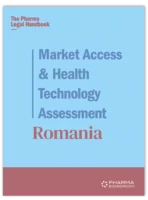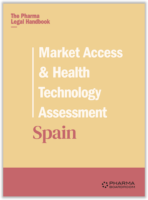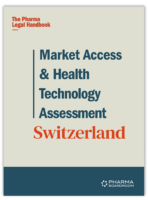Orphan Drugs
Faus Moliner Abogados / Spain
1. What is the definition of an orphan drug in your country?
In Spain there is no particularity in relation to the definition of “orphan drug” derived from the Regulation (EC) No 141/2000.
Under Regulation (EC) No 141/2000 a medicinal product shall be designated as an orphan medicinal product if its sponsor can establish: (i) that it is intended for the diagnosis, prevention or treatment of a life-threatening or chronically debilitating condition affecting not more than five in 10 thousand persons in the Community when the application is made, or that it is intended for the diagnosis, prevention or treatment of a life-threatening, seriously debilitating or serious and chronic condition in the Community and that without incentives it is unlikely that the marketing of the medicinal product in the Community would generate sufficient return to justify the necessary investment; and (ii) that there exists no satisfactory method of diagnosis, prevention or treatment of the condition in question that has been authorised in the Community or, if such method exists, that the medicinal product will be of significant benefit to those affected by that condition.
2. Describe the pricing process of orphan drugs in your country.
There are no particularities for orphan drugs when it comes to pricing. The same P&R Procedure for non-orphan drugs apply. Please refer to Question 1, Section III above.
Further, it is relevant to note that certain orphan drugs are exempt for being included in the reference price system, which means that they have a preferential treatment in this respect. Four elements are relevant for such purposes.
First. On 3 March 2020, a Resolution of the Council of Ministers excluded orphan medicinal products from the reference price system under the following conditions: that no “therapeutic alternative” exists or, otherwise, that the relevant orphan medicinal product provides a “significant clinical benefit”.
Second. On 2 December 2021, the Spanish National High Court issued an important judgment stating, in essence, that orphan products shall be unconditionally excluded from the reference price system. According to such judgement, subjecting orphan drugs to the reference price system goes against the spirit/objectives of Regulation 141/2000 on orphan drugs. This Judgment was not appealed and, therefore, became final.
Third. In February 2022, the Spanish Supreme Court issued two judgements that concluded that it is incorrect to argue that the principle of primacy of EU law and Regulation 141/2000 enable the unconditional non-application of the reference price system to orphan drugs. According to the Supreme Court, orphan drugs are, indeed, subject to the reference price system by virtue of article 98(2) of RDL 1/2015, which does not contravene Regulation 141/2000. As per the Supreme Court, if orphan drugs are to be excluded from the reference price system, this should be done under the terms of the Resolution of the Council of Ministers of 3 March 2020 mentioned above.
Fourth. The RPO updating the reference price system for 2022 originally included some orphan medicinal products but this was identified as an error, and they were later on excluded. The RPO draft updating the reference price system for 2023 does not include orphan drugs.
3. Describe the reimbursement process of orphan drugs in your country.
There are no particularities for orphan drugs when it comes to reimbursement decisions. The same P&R Procedure for non-orphan drugs apply. Please refer to Question 1, Section III above.
4. Other than the clinical studies required, do the data and studies required for the pricing and reimbursement of orphan drugs differ from that of other drugs?
No.

































































